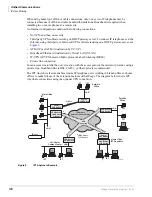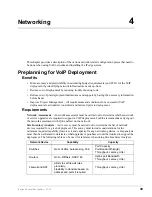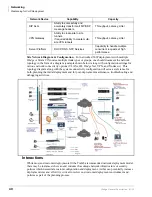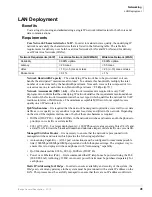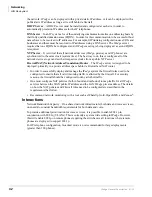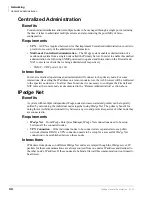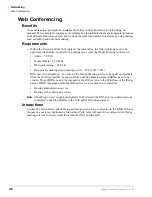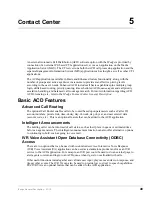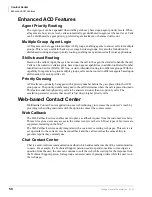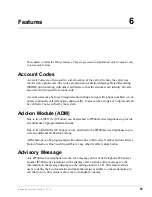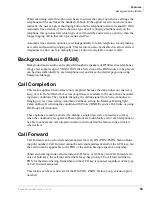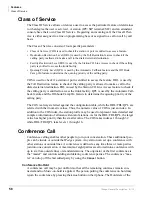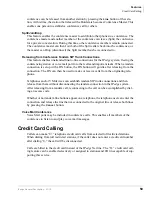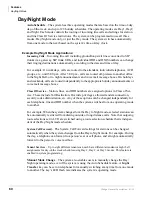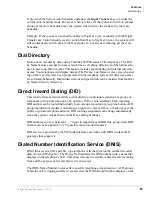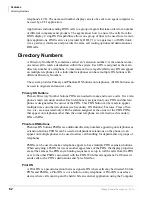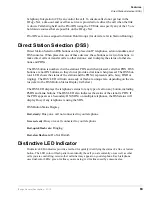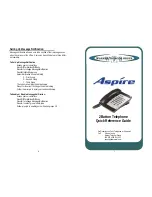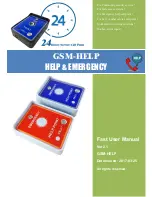
Contact Center
Enhanced ACD Features
50
IPedge General Description 01/12
Enhanced ACD Features
Agent Priority Routing
The Agent pool can be expanded when traffic gets heavy based upon agent priority levels. When
all agents are busy at one level, calls automatically get distributed to agents at the next level. Calls
can be distributed by agent priority, preferred agent treatment, or balanced call count.
Multiple Group Agent Login
ACD agents can be logged into multiple ACD groups, enabling agents to answer calls for multiple
groups. This is very useful for back up coverage between groups. It is also the foundation for
skills-based routing and agent priority routing, enabling many advanced call center applications.
Skills-based Routing
Based on the caller’s input, the system can route the call to the agent best suited to handle the call.
Calls can be routed to certain agents, based upon agent capabilities, in addition to Dialed Number
Identification Service (DNIS), CO line, or Auto Attendant routing into different groups. With the
capability for agents to log into multiple groups, calls can be routed to different agents based upon
skills needed for each specific call.
Priority Queuing
ACD calls can optionally be tagged with a priority number before they are placed into the ACD
group queue. The priority number assigned to the call determines where the call is placed in queue.
This feature enables high priority calls to be answered sooner than low-priority calls. The
escalation parameter ensures that no call is lost due to higher priority calls.
Web-based Contact Center
Multimedia Contact Center application uses web technology to increase the customer’s reach by
providing web surfing customers with the option to contact the contact center.
Web Callback
The Web Callback service enables users to place a callback request from the customer’s website.
This service gives users easy access to the contact center via the web. Most types of browsers are
supported, including on the Mac
®
.
The Web Callback service easily integrates with a customer’s existing web pages. This service is
set up similar to the current voice based callback and the call center has the same ability to
generate reports they currently use.
Chat Contact Center
Chat is a semi-realtime communication method which adds another media of the communication
to users. For example, if a Technical Support person needs to spend some time to investigate a
question from the user, the user can continue to surf the web while waiting for the response from
the Technical Support person. Sales groups can assist users in placing orders while the user is on
the web page.
Summary of Contents for ID EDGE
Page 1: ...TOSHIBA Telecommunication Systems Division January 2012 General Description Title Page ...
Page 6: ...This page is intentionally left blank ...
Page 12: ...This page is intentionally left blank ...
Page 24: ...This page is intentionally left blank ...
Page 128: ...This page is intentionally left blank ...

